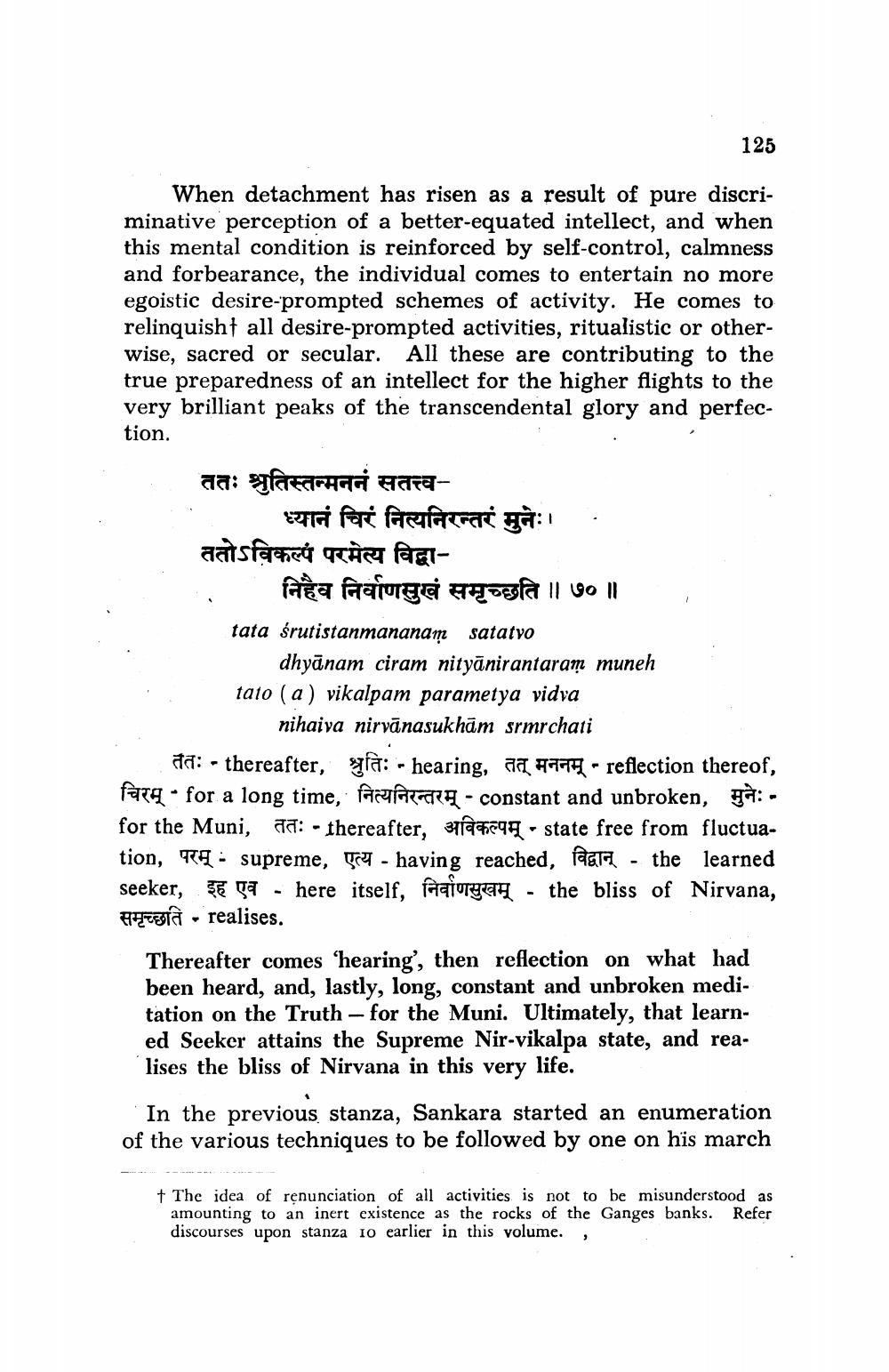________________
125
When detachment has risen as a result of pure discriminative perception of a better-equated intellect, and when this mental condition is reinforced by self-control, calmness and forbearance, the individual comes to entertain no more egoistic desire-prompted schemes of activity. He comes to relinquisht all desire-prompted activities, ritualistic or otherwise, sacred or secular. All these are contributing to the true preparedness of an intellect for the higher flights to the very brilliant peaks of the transcendental glory and perfection.
ततः श्रुतिस्तन्मननं सतत्त्व
ध्यानं चिरं नित्यनिरन्तरं मुनेः। . ततोऽविकल्प परमेत्य विद्वा
निहैव निर्वाणसुखं समृच्छति ॥ ७० ॥ tata śrutistanmananam satatvo
dhyānam ciram nityānirantaram muneh tato (a) vikalpam parametya vidva
nihaiva nirvānasukhām srmrchati ततः - thereafter, श्रुतिः - hearing, तत् मननम् - reflection thereof, चिरम् - for a long time, नित्यनिरन्तरम् - constant and unbroken, मुनेः - for the Muni, 79: - thereafter, 1976297 state free from fluctuation, R4 - supreme, gry - having reached, fast - the learned seeker, $a - here itself, agiunget - the bliss of Nirvana, Festa - realises.
Thereafter comes 'hearing', then reflection on what had been heard, and, lastly, long, constant and unbroken meditation on the Truth – for the Muni. Ultimately, that learned Seeker attains the Supreme Nir-vikalpa state, and realises the bliss of Nirvana in this very life.
In the previous stanza, Sankara started an enumeration of the various techniques to be followed by one on hïs march
+ The idea of renunciation of all activities is not to be misunderstood as amounting to an inert existence as the rocks of the Ganges banks. Refer discourses upon stanza 10 earlier in this volume. ,




